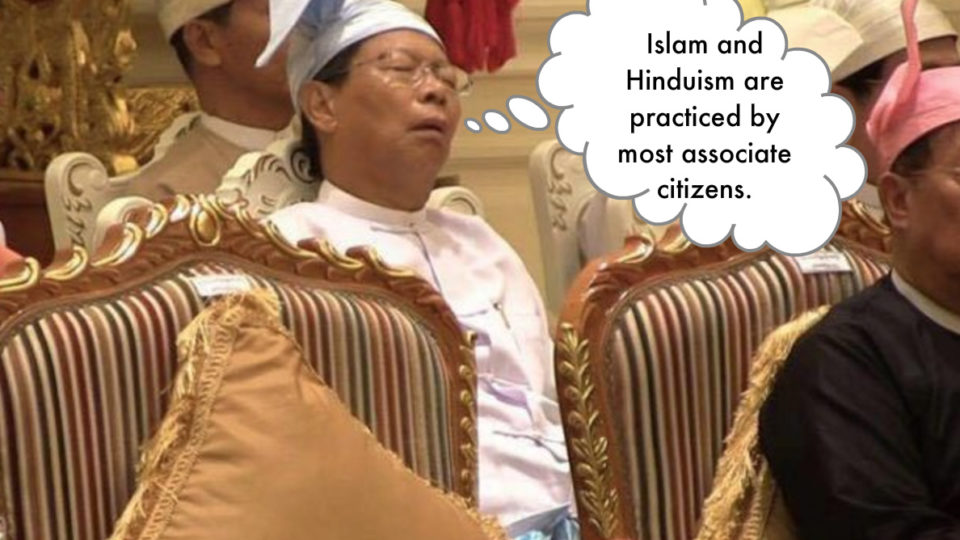Around 1,000 Buddhist nationalists gathered in Naypyidaw on Saturday to demand the resignation of Religious Affairs and Culture Minister Thura Aung Ko. They reportedly pledged to continue protesting until the government enacts a plan “for the protection of race and religion”.
The minister has a history of insulting and failing to protect both the Buddhist and Muslim communities in Myanmar.
Over the weekend, protesters accused Thura Aung Ko of favoring Muslims over Buddhists. Last year, the minister told Voice of America that Myanmar’s previous government had “over-promoted” Buddhism.
The minister also supported the drafting of a bill that would criminalize hate speech, which was understood by many as a measure to protect Myanmar’s Muslim minority.
At the time, hardline Buddhist leader Win Ko Ko Latt publicly opposed the drafting of the bill, saying Myanmar should first focus on preventing “Shariah law” from gaining a foothold in Myanmar.
Win Ko Ko Latt was arrested earlier this month for his involvement in an anti-Rohingya protest outside the US embassy last year. Protesters this weekend also demanded his immediate release.
Frontier reported that the protesters also demanded an apology from Thura Aung Ko’s daughter, Ma Hnin Sabae Aung Ko, for her alleged “derogatory remarks” about the nationalist movement.
The protesters held signboards saying “All Buddhists are participating in this protest” and “The minister who has failed to protect religion must resign”.
However, while he is now courting the ire of hardline Buddhists, Minister Thura Aung Ko previously lost the trust of Muslims and Christians. In May 2016, he urged interfaith leaders in Kayin State to “be patient” while followers of the powerful Buddhist monk U Thuzana forcibly built pagodas on the property of churches and mosques rather than taking action against the interlopers.
He even defended the trespassers by claiming that the followers of U Thuzana were only building pagodas on land “given” to Buddhists by the local Anglican bishop.
He also famously insulted Myanmar Muslims when he said in a radio interview that Islam and Hinduism are practiced by a majority of “associate citizens”, also translated as “visitor citizens”.
Members of these groups took that to mean that he associated religious minorities with second-class citizenship.
Myanmar’s 1982 Citizenship Law lays out three degrees of citizenship: full citizenship, associate citizenship, and naturalized citizenship.
The minister, who served as deputy minister for religious affairs under the military junta and as a secretary of the USDP, quit his former party before he was appointed as a minister by NLD leader Aung San Suu Kyi.
Following his comment about Muslims and Hindus, NLD legal advisor U Ko Ni said: “Whether you are a citizen or not has nothing to do with religion. [Thura Aung Ko’s] remarks are not in accordance with the constitution. As a Union minister, he should have such knowledge. His comment has negative impacts on the NLD.”
U Ko Ni was assassinated in Yangon in January, allegedly by the order of a former military officer.




